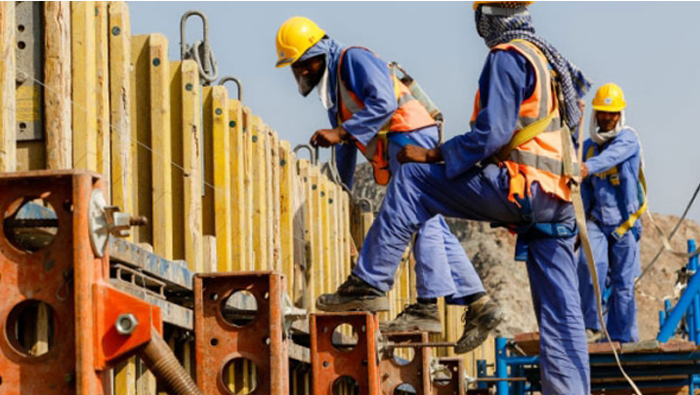
Muscat: Blue collar workers remit 95 per cent of their earnings to take care of their families back home, a senior financial expert in Oman has said.
R Madhusoodhanan, CEO of Global Expat Money, a currency exchange and remittance provider, said the money goes towards the day to day running of households back home, or were put aside for emergencies.
“In Oman, and with my experience with Global Money Exchange, we see that 95% of remittances are sent home by blue collar workers, who come from India, Pakistan, Sri Lanka, Bangladesh, Nepal and the Philippines, to name a few countries,” added Madhusoodhanan These amounts are individually very, very small and I do not see having an impact on a host country. “These are small remittances and the main reason for them to come here is because they need to earn money and send it back home,” he explained.
“This will not in a major way affect the host country. If bulk remittances do happen, then the government authorities will look into it, no doubt, but the majority of the remittances are by blue-collar workers and this is of a small amount, which is again commensurate with their salary.”
Madhusoodhanan said the money sent home by many of these workers was the life-blood of many family members back home.”
“The majority of the money that is sent home by expats – especially blue collar workers – is used either for hospital fees, the day-to-day running of the household, or to pay their children’s school fees. The money that they are getting from working here is the lifeblood of their families back home,” he told Times of Oman.
“Many a time, we will have people coming to us and asking us to remit the money home as soon as possible, because their wives are actually standing in front of the ATMs waiting for the money to be credited, so we have to be available for these people all the time, and that is how important the money they earn here is for them,” he added.
He added that although there is no remittance tax at present in thr Sultanate, any decision on remittances would be taken only after the authorities completed a thorough study on its impact on those who lived in Oman.
He said this in the wake of Oman’s fellow GCC member nation Kuwait implementing the decision to tax money sent by expats to their home nations.
“As of now, it will not be introduced, but I don’t think this will have a big impact on the remittances,” he said, in an exclusive interview with Times of Oman. “The thing is, for any developing economy, the inward remittance is good, but at the same time, what about the host country? Are any checks required for this? The truth is that there is no readymade answer to this question, because the respective government authorities will be taking up the various parameters and conditions into question, and this also depends on the particular situation that the authorities look at, because they will take the decision that is best for the country.”
“Taxation on remittances has its own merits and demerits. Any developing economy’s government needs money for its developmental activities so the individuals of these country’s need to absorb a little bit of pain. Any developing economy needs money, so we have to look at that perspective,” he added.
“If any government takes a decision, it is the duty of the people of that nation to support it. It will take some time for them, but I think after sometime, they will get used to it.”